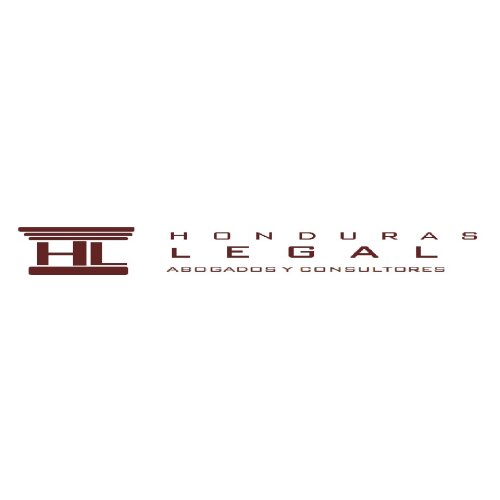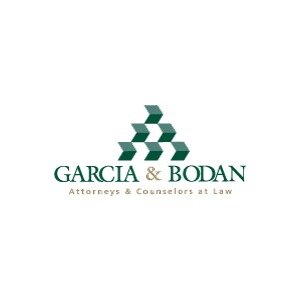Best Natural Resources Lawyers in Honduras
Share your needs with us, get contacted by law firms.
Free. Takes 2 min.
Or refine your search by selecting a city:
List of the best lawyers in Honduras
About Natural Resources Law in Honduras
Natural Resources Law in Honduras encompasses the legal frameworks that govern the exploration, extraction, use, and conservation of natural resources such as minerals, water, air, forests, and wildlife. Honduras is rich in biodiversity and has significant mineral deposits, forests, and coastal resources. The legal system aims to balance economic development with environmental conservation, ensuring sustainable use of these resources for current and future generations. The country's geography lends itself to abundant natural beauty and resources, making it vital to enforce regulations that safeguard environmental interests.
Why You May Need a Lawyer
There are various situations where individuals or businesses may require legal assistance concerning natural resources in Honduras:
- Business Ventures: Companies looking to engage in resource extraction or related businesses need to navigate complex regulatory requirements.
- Environmental Permits: Obtaining the necessary permits and licenses for resource use or land development requires legal expertise.
- Land Disputes: Conflicts over land ownership can arise, particularly with indigenous lands where resource exploitation may affect local communities.
- Compliance Issues: Companies need to ensure they adhere to environmental standards, or they could face legal repercussions.
- Community Impact Assessments: Legal advice may be needed to conduct assessments of how projects affect local communities and ecosystems.
Local Laws Overview
The following are key aspects of local laws relevant to natural resources in Honduras:
- Environmental Framework Law: This sets out the national environmental policy and establishes guidelines for environmental management.
- Mining Law: Governs the exploration and exploitation of mineral resources, outlining the requirements for obtaining concessions and exploring resource-rich lands.
- Forestry Law: Provides regulations on the preservation and sustainable use of forests, including reforestation obligations for timber companies.
- Water Law: Manages the use and protection of water resources, critical for both public supply and industrial use.
- Protected Areas and Wildlife Act: Protects biodiversity and conserves natural habitats, stipulating permissible activities in protected areas.
Frequently Asked Questions
What is the process for obtaining a mining concession in Honduras?
To obtain a mining concession, you must apply through the Honduran Institute of Geology and Mines (INHGEOMIN). The process involves environmental impact assessments and community consultations.
Are there specific environmental permits required for water usage?
Yes, the use of water resources requires permits from the National Directorate of Water Resources, especially for large-scale agricultural, industrial, or commercial purposes.
Can foreign entities own natural resources in Honduras?
Foreign entities can invest in resource extraction, but ownership of certain resources may be restricted or require partnership with local entities or compliance with specific investment laws.
What role do indigenous communities have in resource management?
Indigenous communities have rights to be consulted about projects affecting their lands. The Free, Prior, and Informed Consent (FPIC) principle is integral in projects impacting indigenous areas.
How are environmental protections enforced in Honduras?
Environmental protections are enforced by the Ministry of Environment and Natural Resources (MiAmbiente), which monitors compliance and imposes penalties for violations.
What are the penalties for illegal resource extraction?
Penalties can include fines, imprisonment, and the revocation of licenses or concessions. Legal proceedings may also be initiated for damage caused to the environment.
Is public access to beaches protected under Honduran law?
Yes, the Law of Coastal Zones ensures public access to beaches, prohibiting privatization or undue restriction of public entry to these areas.
What steps are involved in conducting environmental impact assessments?
Environmental impact assessments involve evaluating potential environmental and social impacts of a project, consulting stakeholders, and obtaining approval from MiAmbiente before proceeding.
Are there legal incentives for sustainable practices?
Yes, there are incentives such as tax breaks and subsidies for businesses that adopt sustainable practices and contribute to conservation efforts.
How can biodiversity be legally protected on private land?
Private landowners can establish private protected areas under national law, gaining recognition and support for conservation initiatives while maintaining certain land use rights.
Additional Resources
The following resources can provide further assistance:
- Ministry of Environment and Natural Resources (MiAmbiente): Lead agency for environmental regulation and protection.
- Honduran Institute of Geology and Mines (INHGEOMIN): Responsible for the oversight of mining activities.
- National Institute for Forest Conservation and Development (ICF): Manages forest resources and conservation projects.
- Local NGOs: Organizations such as the Center for Environmental Rights can provide legal support and advocacy for community rights and environmental protection.
Next Steps
If you need legal assistance in natural resources in Honduras, consider taking the following steps:
- Consult a Lawyer: Seek an attorney experienced in natural resources law to guide you through particular legal issues.
- Gather Documentation: Compile all relevant documents, permits, and correspondence related to your issue for your legal counsel.
- Engage with Local Authorities: Contact relevant governmental bodies to better understand the specific regulations and requirements that apply to your situation.
- Conduct Research: Stay informed about the local laws and any changes that may affect your interests or obligations.
Lawzana helps you find the best lawyers and law firms in Honduras through a curated and pre-screened list of qualified legal professionals. Our platform offers rankings and detailed profiles of attorneys and law firms, allowing you to compare based on practice areas, including Natural Resources, experience, and client feedback.
Each profile includes a description of the firm's areas of practice, client reviews, team members and partners, year of establishment, spoken languages, office locations, contact information, social media presence, and any published articles or resources. Most firms on our platform speak English and are experienced in both local and international legal matters.
Get a quote from top-rated law firms in Honduras — quickly, securely, and without unnecessary hassle.
Disclaimer:
The information provided on this page is for general informational purposes only and does not constitute legal advice. While we strive to ensure the accuracy and relevance of the content, legal information may change over time, and interpretations of the law can vary. You should always consult with a qualified legal professional for advice specific to your situation.
We disclaim all liability for actions taken or not taken based on the content of this page. If you believe any information is incorrect or outdated, please contact us, and we will review and update it where appropriate.
Browse natural resources law firms by city in Honduras
Refine your search by selecting a city.















